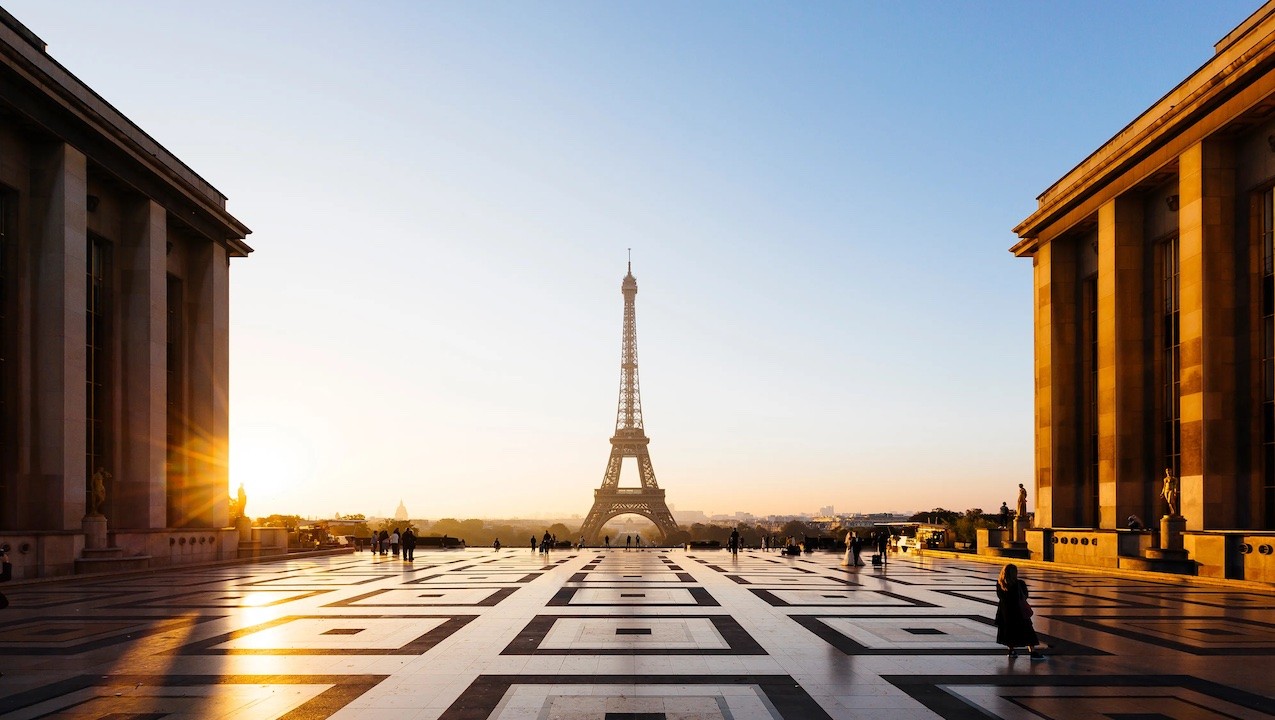Brand France, challenged by globalization in Africa
Brand France, challenged by globalization in Africa
Note: This is as a response to a written piece by Stratégies France, titled: France, a contested brand in Africa
My name is Kwame Senou. I am currently a Senior Advisor at Opinion & Public BCW, a Côte d’Ivoire partner of the New-York based firm BCW. I was born and brought up in Benin Republic and I was educated in the French language with a law degree. I also studied the French history throughout my schooling and my academic programs offered me a French perspective on anything global. Now, you would wonder how today I am using English in trading and partnering with people around the world. My story which is very common in French speaking Africa will help you understand the shifts that are happening, and that the French fail to recognize, because of decades of operating here, have led them to believe they have a perfect understanding.
How the audience behavior has evolved
I reside in Côte d’Ivoire where 76% of the population is below the age of 35 approximately. Much of this group is mobile /social and involved in the global community. They listen to music such as Afrobeats from Nigeria as well as Amapiano form South Africa and have access to a wealth of resources online to learn by themselves the painful and complex history of colonization and how Africa’s relationship with the world has been undermined by the West. This audience understands how the extractive economy set up by the colonizers continues to work today harming the economies. This includes the production of cocoa and cotton, as well as its exportation. They are aware of how the rule-based world order is the one that the West decides. If there’s any manipulation conducted in French speaking Africa, it is merely amplifying France’s own flaws in a region it has come to assume as a property “a chasse gardée” that could never be threatened by time or changes – a damning mistake.
My parents’ generation worldview was shaped by the likes of RFI, TV5 and CFI-sponsored African comedies painting Africa as clowns, portrayed as only being preoccupied with dance and polygamy. Unlike with this generation, in my parents’ time, it was impossible to have a house without Laperche, Legrand, Vachette, or other French brands featured in it. Lately, they are almost entirely replaced by Chinese or Turkish alternatives. Today’s audience in the French Speaking region is one that is open to the world, and they are watching alternative media such as CNN, Al Jazeera, or Russia Today. They are multilingual and have studied in multiple locations like in India, Canada, China, Turkiye or the USA.
This group vacays in Accra, Abidjan, Zanzibar as well as in Dubai, the Maldives, or North America. When they do go to France, it is more so to visit a relative than to tour and experience the beauty of the French riviera. Moreover, the Internet has made it easy for the English-speaking Africa to have access to information about France’s intervention on the continent, that has resulted in damaging the good reputation France used to enjoy. The problem of ‘Brand France’ is not only in Francophone Africa and will only grow considering what France sees as an appropriate reaction.
Brand France has an adaptation problem

Africa has changed, but it seems that French analysts don’t want to admit that they have failed to adapt, which is a basic human condition for survival and a marketing imperative for any brand. One can’t isolate France as a political brand from France as a business brand. Both are intertwined and if some French business brands are still doing well, they should start worrying about the moment where the millennials will become the political leaders (the continent’s decision makers are still on average over 55 years old). An Australian professor, Byron Sharp wrote in his published book called, “How brands grow?” that brands grow by being mentally and physically available. If we are to apply his research to the brand France, the results will be condemning.
France’s physical availability
Is France physically available? The answer for me is NO. French businesses are leaving Africa. COLINA sold to Saham; Financial Bank sold to ECP – what became later ORAGROUP. BNP is leaving everywhere it was present in. Even the “expatriés”, French nationals based in Africa operating SMEs are now selling their businesses and going back to France for their retirement. Their children are not interested in running the business and their assets are being bought by non-French.
Another notable matter is the concerning visitor access to France. The visas issue remains a challenge unsolved as the criteria are rather untransparent for most people. I have never been denied a French visa as I always made sure to be invited by good friends. Whenever France organizes an event on the continent, it focuses on attracting dual citizens, or Africans in French companies instead of expanding its reach to African academics who were trained in Germany, USA, Canada or elsewhere, businesses owned and operated by Africans.
Tony Elumelu is an exception that hides all the talented entrepreneurs on the continent, big or small who could be partners of brand France. For 20 years, France’s reaction to global competition and the rise of other brands like China has been to redeploy many of its companies to Eastern Europe and Asia and close shop on the continent. On the political front, French interventionism on many topics including the uncomfortable CFA issue has been at odds with the ambition on the continent. Côte d’Ivoire’s President Ouattara recently got frustrated over the sustainable cocoa initiative that was presented as a demand, and mentioned that in a global world, the country’s cocoa will still be eligible elsewhere should Europe be disinterested – a warning without cost.
France’s mental availability
Professor Sharp and Professor Jenni Romaniuk explained brand growth by building mental availability, through distinctive brand assets that are relevant to the category. If the category is International Relations, to be relevant today would be to a good trade partner, an innovation center, and an ally in a moving world. France trading with Africa is only decreasing making it less relevant for citizens and governments alike.
When Uber, Facebook, Tik Tok and all the world recent innovations came out – France was nowhere to be found. Even where COVID-19 vaccines were received from various other countries including Russia. One can’t argue that France is an ally of the people if we look at France recent political decisions in Africa: Libya being the most famous. France is more and more forgotten from decision-making considerations.
Togo’s US trained President, Faure Gnassingbé’s move to the commonwealth didn’t surprise me, but Elf’s Gabon was a sign of a new dawn, even in Africans political elites’ circle. The Morocco High Speed Train deal with China is another sign of France’s involvement decline, added to the USA becoming the first foreign investor in the country this year taking over France. I don’t want to remind the French elite of the AUKUS deal as well.
We Africans can read, observe, and analyze these matters and what we are seeing is that France is less and less a powerhouse on the continent and even on global stage. We also embrace the diversification of partnerships to achieve urgently our objectives in economic development, human security, and peace.
Remarks on the article and suggestions to French elites
There are many confirmation biases in this article, but there is also a perfect representation of what is wrong with France’s relationship with Africa – this is a story about Africa, but there are no quoted Africans. All the data presented was from France’s sources and the words were poorly chosen. Look at these for instance:
- “François Hurstel, patron-fondateur de l’agence d’influence Concerto, qui a lui-même placé une Camerounaise à la tête de son bureau à Abidjan pour être plus audible” (translation: François Hurstel, boss, and founder of the influence agency Concerto, who himself placed a Cameroonian at the head of his office in Abidjan to be more audible). Reacting to this portion of the story, a senior African diplomat told me: “The French always like to fake things. Their strategy of putting binationals as black faces on their companies is pure trickery whose positive effects are ephemeral.” I couldn’t agree more. I know François and doubt if he is looking for black faces, but the understanding of the journalist is rather appalling in this regard.
- « Nous n’avons pas les mêmes standards, mais cela finira par nous servir », veut croire Philippine van Tichelen, directrice associée de Havas International Consulting (translation: “We don’t have the same standards, but it will serve us well in the end,” says Philippine van Tichelen, associate director of Havas International Consulting). The real meaning is that Africa is sub-standard. This is also pure fantasy.
In the communications industry, Africa has been exposed to American, British, and Japanese firms who come with local partners fully embedded, providing insights and an adaptation to their global frameworks. French agencies pale in comparison, and if not for their access, cannot compete with the others. I have worked with all of them and have come to assess the differences.
The purpose of this story was probably to put together facts around the decline of Brand France, but it didn’t help understand the why and the way-forward. Brand France is not damaged only in Africa, it is damaged even in France, and the rest of the world. To improve its image in Africa, France needs to fix its issues at home.
My friend, the senior diplomat to add: “Sustainability lies, not on bandages, but on a deep paradigm shift based on mutual respect.”
Brand France needs a paradigm shift based on mutual respect; this is something that can’t be done overnight. It won’t be achieved by fact-checking or blaming the Russians and their sympathizers in Africa. France needs a 30-year plan to deal with pressing issues like CFA, business partnerships, investment, and innovation. They need a revamp of their diplomacy and their areas of focus. You can’t force values on people, Africans are ready to agree on principles, but not on values. As European union motto clearly mentions, let’s be “United in diversity”.
Brand France needs to expand its reach to everyone: the diaspora, but also the locals (move beyond this idea of only accepting the compatibles from the French schools / French companies or those with a French spouse). Brand France will also learn to speak English and find another purpose to Francophonie.
This will take time.





